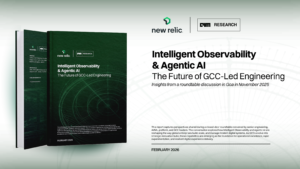The adoption of data analytics and artificial intelligence (AI) presents both significant opportunities and formidable challenges for organizations. While the potential benefits of AI and data-driven decision-making are immense, including enhanced efficiency, innovative capabilities, and competitive advantage, many organizations struggle with the practical aspects of implementation.
Key challenges include data quality and integration issues, lack of skilled personnel, cultural resistance to change, and inadequate infrastructure. This article explores these barriers in detail and provides a framework for assessing organizational readiness. By addressing these challenges proactively, organizations can better position themselves to harness the transformative power of data and AI, ensuring a smoother transition and maximizing the return on their technological investments.
Data Readiness: Laying the Groundwork
Data readiness is a crucial factor in the successful adoption of AI and data-driven technologies. Organizations often face challenges related to data quality, accessibility, and integration. High-quality data is essential for generating accurate insights and reliable predictions, yet many companies struggle with fragmented data sources and inconsistent data standards.
Ensuring data readiness involves several key steps:
Data Cleansing: Removing inaccuracies and inconsistencies from data sets to improve the quality and reliability of insights.
Data Integration: Combining disparate sources of data to create a unified, comprehensive view that supports robust analysis and decision-making.
Robust Data Governance: Establishing frameworks to maintain data integrity, security, and compliance. This includes setting clear data standards and policies.
Modern Data Infrastructure: Investing in scalable cloud solutions and advanced data management tools to support efficient data processing and storage. For instance, adopting platforms like Snowflake or Databricks can enhance data accessibility and processing capabilities.
Ernst & Young (EY) offers a compelling example of how finance companies assess and promote data readiness for AI adoption. Through various surveys and assessments, EY has highlighted the importance of technological preparedness across multiple domains. Their Digital Readiness Assessment helps organizations evaluate their digital capabilities, while their surveys on data protection, metaverse, and AI readiness provide insights into industry trends and challenges. Notably, EY’s survey on AI adoption in financial services revealed that 99% of financial services leaders reported deploying AI in some capacity, with all respondents either using or planning to use generative AI. This underscores the critical need for high-quality, accessible, and integrated data in the finance sector to support successful AI implementation and drive data-driven decision-making.
Additionally, organizations must invest in modern data infrastructure that supports efficient data processing and storage. This includes adopting scalable cloud solutions and advanced data management tools. By prioritizing data readiness, organizations can lay a solid foundation for AI initiatives, enabling them to leverage data effectively to drive innovation and achieve strategic objectives.
Culture and Mindset: The Human Element of AI Adoption
The successful implementation of AI and data analytics hinges not only on technology but also on organizational culture and mindset. Cultural resistance to change is a common barrier, as employees may feel apprehensive about the implications of AI on their roles and the overall work environment.
Strategies to Overcome Cultural Resistance:
Clear Communication: Leaders must clearly articulate the benefits of AI, emphasizing how it can enhance, rather than replace, human roles. Transparency about AI initiatives can help dispel myths and reduce uncertainty.
Training and Development: Providing continuous learning opportunities is essential. This includes workshops, online courses, and hands-on training sessions to improve data literacy and AI competencies among employees.
Promoting an Open Mindset: Encouraging a culture of continuous learning and openness to technological advancements can help ease the transition. This involves recognizing and rewarding innovative thinking and adaptability.
Employee Engagement: Actively involving employees in AI projects from the pilot phase can help them see the tangible benefits and contribute to the development and implementation processes. This participatory approach can alleviate fears and build trust.
Leadership by Example: Leaders should model data-driven decision-making and openly use AI insights in strategic planning. By demonstrating a commitment to technology adoption, they can inspire confidence and buy-in from the workforce.
In financial services, fostering a data-driven culture can lead to significant advancements in risk management and customer service. For example, a bank implementing AI-powered fraud detection systems can involve employees in the development and deployment of these systems. Training staff to interpret AI-generated insights and showcasing leadership’s reliance on these tools for decision-making can reduce resistance and encourage widespread adoption. This cultural shift not only improves security but also enhances customer trust and satisfaction.
By cultivating a supportive culture and adaptive mindset, organizations can enhance their readiness for AI adoption. Ensuring that employees are motivated and equipped to embrace new technologies is key to driving meaningful change and realizing the full potential of AI.
Paving the Way for AI Adoption
The journey to successful AI adoption is marked by significant challenges and requires a strategic approach to ensure readiness. This article has explored the critical aspects of this process, emphasizing the importance of data readiness and a supportive organizational culture.
Organizations must focus on maintaining high-quality, accessible, and integrated data through data cleansing, integration, and establishing robust governance frameworks.Investing in modern data infrastructure, such as scalable cloud solutions and advanced data management tools, is also essential. Overcoming resistance to change is crucial for AI implementation. Leaders must foster a culture of data-driven decision-making, provide continuous training and development opportunities, and actively engage employees in AI projects.
By setting an example and incorporating AI insights into strategic planning, leadership can build trust and encourage widespread adoption. To address these challenges, organizations should prioritize leadership involvement, invest in scalable data solutions, and involve employees throughout the AI journey. By focusing on these areas, organizations can enhance their readiness for AI adoption, drive meaningful change, and fully realize the transformative potential of AI technologies.






